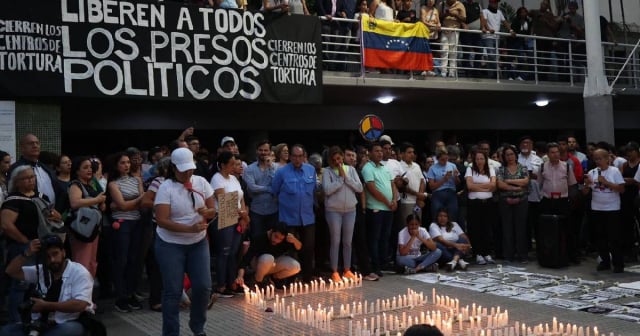Nicolás Maduro took advantage of his recent visit to the Supreme Court of Justice (TSJ) to reaffirm his intention to remain in power, making it clear that he has no plans to leave the Palacio de Miraflores.
During his speech, the Venezuelan leader dismissed any possibility of negotiation with opposition leader María Corina Machado, stating that the only one who has to negotiate with Machado is the country's attorney general.
That statement was accompanied by a series of insults and threats towards the opposition.
Maduro described Machado as a "terrorist fugitive from justice," despite the fact that there is no arrest warrant against her.
The president's refusal came in response to Machado's proposal to negotiate a democratic transition, in which Maduro would receive "guarantees, safe conducts, and incentives" to relinquish power.
That offer emerged after it was reported, according to The Economist, that Washington offered Maduro "whatever he wants" in exchange for recognizing his electoral defeat.
In this context, the new president of Panama, Raúl Mulino, revealed his willingness for his country to host a transition that would allow Maduro to leave for a third country peacefully.
Mulino, along with other Latin American leaders who oppose the Venezuelan regime, has been organizing a summit to address the crisis in Venezuela.
Although Panama initially offered to host, it seems more likely that the meeting will take place in Santo Domingo, coinciding with the inauguration of Dominican president Luis Abinader.
At the same time, a mini-summit remains on hold among the leftist presidents of Brazil, Mexico, and Colombia, who are leading the international mediation in the Venezuelan crisis.
Lula da Silva, Andrés Manuel López Obrador, and Gustavo Petro have insisted that it should be the National Electoral Council (CNE) that publishes the complete results of the recent elections.
Despite the fact that two weeks have passed since the elections on July 28, the only public information about the results comes from the democratic opposition, which has published 83% of the official records online.
Meanwhile, chavismo refuses to make the minutes public, claiming a supposed hacking from North Macedonia.
The crisis has been transferred to the TSJ, which acts as the main tool of repression of the regime against the opposition.
The Carter Center, the only independent organization that monitored the elections, confirmed the victory of the opposition candidate Edmundo González Urrutia, who received 67% of the votes, surpassing Maduro, who reportedly received only 30%.
Despite the threats against her life, María Corina Machado has reiterated her determination to continue the fight in the streets until "the truth prevails and popular sovereignty is respected."
What do you think?
COMMENTFiled under:
